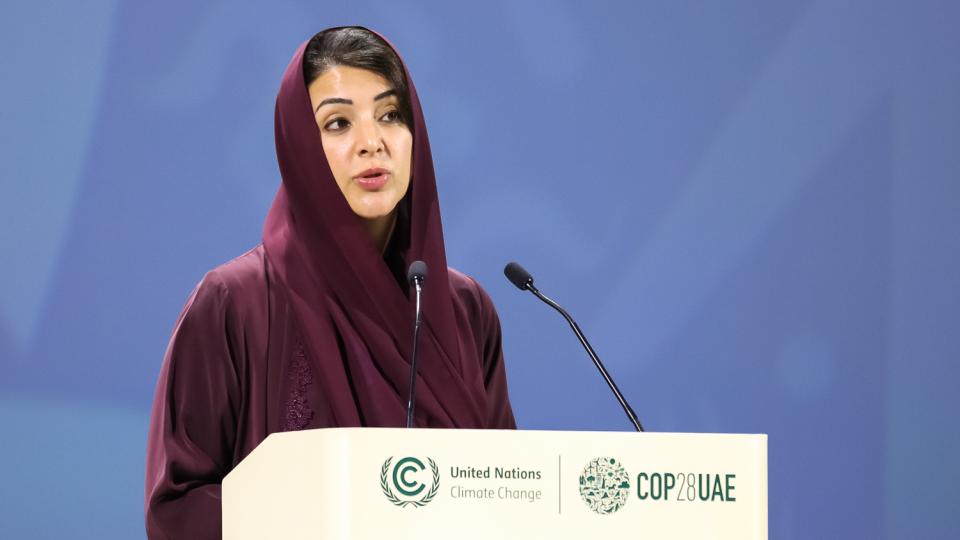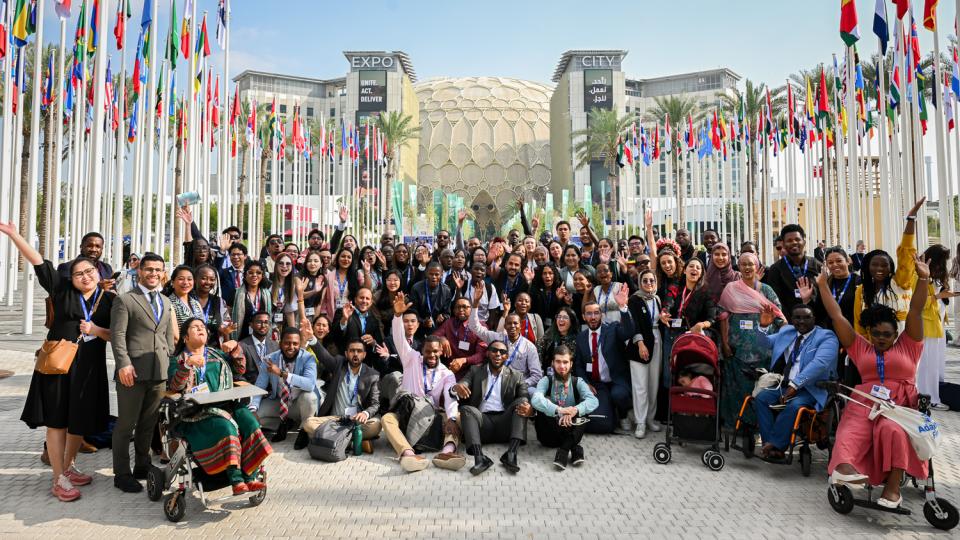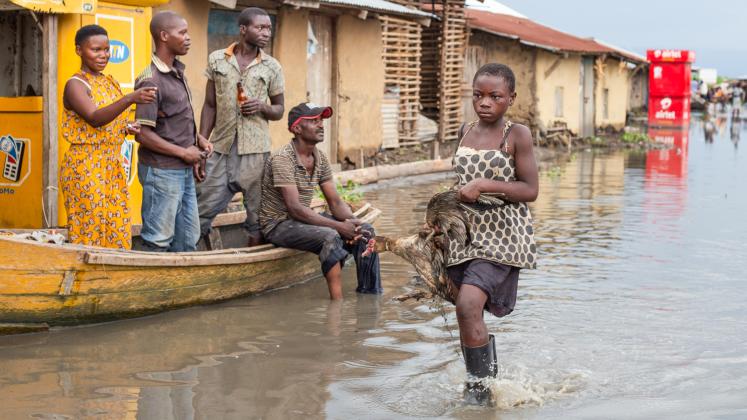Attendance and fossil fuels were the main themes highlighted by many of the headlines tackling COP28.
Held in Dubai in December, it was the biggest United Nations climate conference ever, with over 80,000 participants, and a landmark agreement was reached to transition away from fossil fuels — despite the robust presence of representatives from the fossil fuel industry.
In the shadows of most COP28 coverage, two other outcomes fundamental to the future of climate action were achieved: The conference put health into focus like never before and brought youth voices to the table in myriad new ways.
Each year, more than five million people worldwide die of causes related to air pollution from fossil fuel use, heat-related illnesses and deaths continue to increase. Around 189 million people are exposed to extreme weather events. In recognition of the fact that health must become a centerpiece of climate action, COP28 hosted the conference’s first-ever Health Day. The World Health Organization (WHO) and more than 40 million health professionals marked the event by joining in a call to action to prioritize health in climate negotiations and policies.
In this call, they urged governments to fulfill existing commitments, adhere to the Paris Agreement to keep global temperature rise within 1.5 degrees Celsius, expedite the transition away from fossil fuels, and elevate aspirations for a healthier, more equitable and greener future.
In recent years, the health community has grown in both size and confidence, emerging as a formidable ally for those engaged in climate action. For the first time, more than 110 state health ministers attended COP alongside their peers in environment, finance and other sectors. This signaled a shift in how climate policies are considered, with a stronger focus on the social and health implications of decision-making.
This collaboration culminated in the climate-health ministerial meeting, in which more than 120 countries endorsed a groundbreaking document — the first at a global level in which governments recognized the increasing health impacts of climate change. The COP28 UAE Declaration on Climate and Health was launched by the conference’s presidency in partnership with WHO and the United Arab Emirates’ health ministry. It highlights substantial health and environmental co-benefits from robust climate action, such as reducing air pollution and lowering health care costs. Moreover, $1 billion in financial commitments were announced to support these political pledges.


“Climate risk is a health risk,” WHO Director-General Tedros Adhanom Ghebreyesus said at an event about the declaration. “Health can be a game changer for climate action because it matters to everyone. We cannot maintain good health in a world of more frequent and severe heat waves, wildfires, floods and droughts, with increasing temperatures fueling the spread of infectious diseases, destroying harvests and increasing water scarcity.”
Reem Ebrahim Al Hashimy, UAE Minister of State for International Cooperation, shared the same stage and highlighted that “health is the personal experience of climate change. It is the human face of climate change.” Mia Amor Mottley, prime minister of Barbados, concluded her remarks at the event by emphasizing: “Without health, we have nothing.”
Within the declaration, the aspect most relevant to my research at the United Nations University (UNU) is the commitment to “promoting a comprehensive response to address the impacts of climate change on health, including mental health and psychosocial well-being.” This is an essential appeal considering that, currently, just 28% of countries have functional programs that incorporate mental health support into reduction of and preparedness for risks related to climate disasters.
Worldwide, mental health support is already facing its own challenges. 1 billion people are living with a mental health condition, with only 13 care workers available for every 100,000 people. Yet, governments are only allocating an average of 2% of their health budgets to these issues.
Climate change may make things worse by amplifying suffering, particularly in underserved settings, due to inadequate services and pervasive cultural stigma of mental illness. The capacity, globally, to adequately serve those in need has been sorely lacking.
Therefore, the COP28 milestone gives us hope, and it was exhilarating for me to experience the announcement firsthand at such a global event.
Yet, while there were nearly 200 health-related events at COP28, just over 10 were dedicated to mental health. These included a session convened by the conference’s presidency and a UN high-level side event organized by UNU with WHO. The latter event addressed the intersection of climate change and mental health and followed a previous iteration we co-organized at COP27 in Sharm el-Sheikh, Egypt, in 2022. The focus on mental health at COP is a promising sign of progress. In this respect, I observed a significant shift: Mental health has become an essential aspect of mainstream climate discussions. But there is certainly potential for further steps forward in this area.
I was also pleased to witness another milestone achieved at COP28, namely, the strong presence of youth delegates. Approximately 85% (2.2 billion) of the world’s children live in low— and middle-income countries, which are particularly susceptible to climate risks. And over 88% of the disease burden linked to climate change affects children — making this one the groups most vulnerable to the health impacts of rising temperatures. Yet, so far, there has been minimal focus on the mental health impacts of climate risks on children.

As I walked through the huge Expo City Dubai venue, young people were everywhere. This was in part due to efforts at the conference to support and give visibility to this crucial demographic, including via three novel initiatives: the selection of a “youth climate champion,” a ministerial-level position responsible for acting as a bridge between governments, officials and young people; the International Youth Climate Delegate Program, a capacity development program that fully funded 100 young people to participate in the climate negotiations; and the Youth Stocktake, a comprehensive analysis of youth involvement in climate diplomacy.
Contributing to a number of events involving young people and engaging in conversations with younger delegates from several governments led me to believe that climate education will play a key role in fostering psychological resilience among future generations. As such, I was pleased to see the COP28 presidency urge improvements in global climate education, with 38 countries signing the UNESCO Greening Education Partnership declaration to incorporate climate education into their Nationally Determined Contributions (countries’ commitments to reducing emissions) and National Adaptation Plans.
Building climate knowledge involves mutual learning of collective environmental actions, as well as recognizing how we feel and sharing these feelings in safe spaces, such as schools. Including climate education in school curricula should, in fact, become the new normal. Furthermore, investing in preparing educators, parents and caregivers through knowledge empowerment is crucial in guiding the next generation. Integrating mental health considerations into climate education is also essential in building psychological resilience.
Once COP28 ended, the health community was critical of the summit for not committing to a crucial phase-out of fossil fuels and for failing to set robust adaptation targets to build resilient systems for vulnerable populations. Youth activists were similarly dismayed. However, the growing power of these groups is, to me, a sign of promising developments on the horizon. Integrating mental health considerations into climate education serves as a dual catalyst, encouraging action on climate and forging robust psychological resilience in the leaders of tomorrow.
This article was first published by The Japan Times. Read the original article on The Japan Times website.
Suggested citation: Sanae Okamoto. "We’re Finally Recognizing Climate Change’s Mental Health Toll," United Nations University, UNU-MERIT, UNU Centre, 2024-02-08, https://unu.edu/merit/article/were-finally-recognizing-climate-changes-mental-health-toll.


